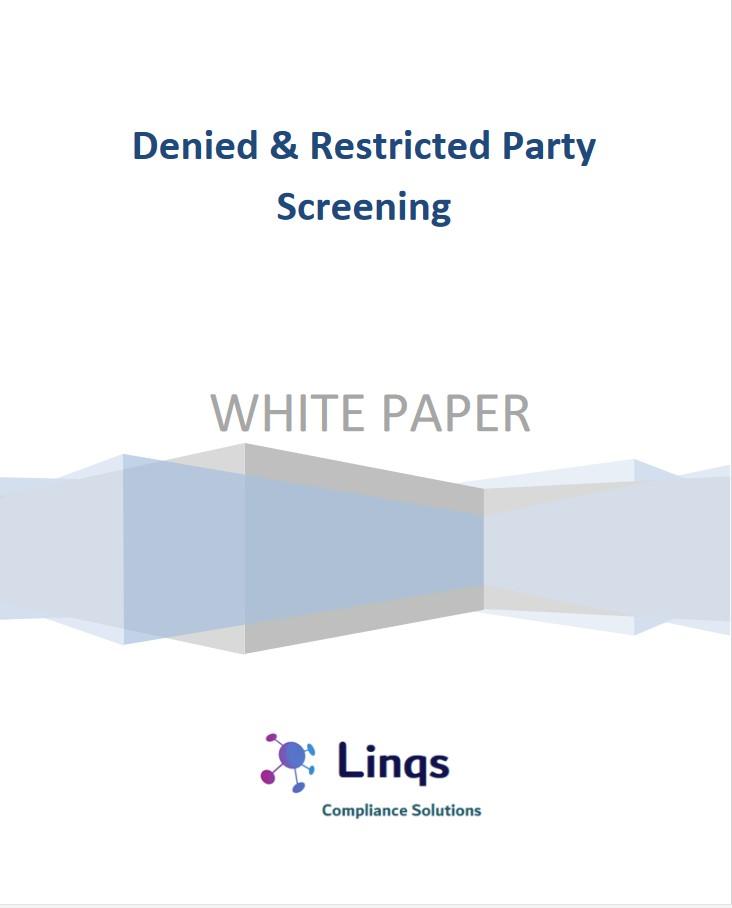WHAT IS DENIED/RESTRICTED PARTY?
Government agencies as well as International organizations publish lists of entities and companies that are denied or restricted from doing business with. In the event a company, entity, or a person on one of such lists appears to match a potential party in an export transaction, additional due diligence is required before proceeding.
Typically, depending on which list the match was found, a match would indicate the either of the following situations:
- A strict business/export prohibition,
- A specific license or authorization requirement for exporting to or making a business with the sanctioned entity, or
- The presence of a “red flag” in this transaction with the sanctioned entity.
According to agencies which publish the denied and/or sanctioned party lists, prior to taking any further actions, companies and organizations are to consult the requirements of the specific list on which the company, entity or person is identified by reviewing the webpage of the agency responsible for the list. Violation of the regulations would cause criminal and administrative penalties against the companies and organizations. Moreover, violators may be subject to denial of their export privileges, which essentially means the company is prohibited from participating in any future transaction. It is also noteworthy that the company business reputation would be severely damaged resulting from a bad publicity of a non-compliance.
Government agencies generally add the entities, individuals and companies to the restricted party lists for several reasons. They commonly define such reasons as in the following:
- A foreign party, such as an individual, business, research institution, or government organization, for engaging in activities contrary to U.S. national security and/or foreign policy interests.
- A list of individuals and entities that have been denied export privileges. Any dealings with a party on this list that would violate the terms of its denial order are prohibited.
- Some foreign entities are prohibited from receiving some or all items that are subject to the export controls unless the exporter secures a license. Those persons/entities present a greater risk of diversion to weapons of mass destruction (WMD) programs, terrorism, narcotic trafficking, financial criminal activities, or other activities contrary to U.S. national security or foreign policy interests.
- In certain cases, a government agency has been unable to verify the end-user in prior transactions. Typically, the presence of a party on this list in a transaction is a “Red Flag” that should be resolved before proceeding with the transaction.
Organizations may enjoy using applicable license exceptions in their transactions when the export license requirement exists. However, in most instances, license exceptions that are otherwise available for the export, re-export or transfer (in-country) to a party cannot be used if the party is listed in the denied party lists. Rather, such transactions require an export license and are usually subject to a policy of denial.
Download White Paper – Best Practices in Denied Party Screening
HOW CAN WE HELP YOU
Hosted and web-based Linqs SPS software effectively screens your customers, suppliers, consultants, employees, visitors and other trade partners
REQUEST MORE INFORMATION & QUOTE
Reliable and Effective Watch List Screening Software
Have Linqs as your partner in compliance, save on time and cost while getting the dedicated support from our experts with average of two decades of industry experience.
Reliable and efficient
Reliable, fast and efficient denied party screening is a necessity. Day-to-day operations require modular and flexible searching capabilities with high accuracy of the results.
From the customer setup to the hire of foreign national employee Linqs streamlines your compliance.
Extensive watch lists
We support more than 240 global watch lists and country warning lists to ensure your business operations stay compliant with the domestic and foreign regulations which are in force.
Variable screening functionality
Real-time single party screening with quick and enhanced screening functionality.
Real-time self-service multiple party/bulk screening.
Comprehensive set of selectable regulatory watch lists.
Country specific warnings and risk assessment independent of the entity searched.
Security and scalability
Hosted, fully web-based architecture to improve the costs and user efficiency.
Industry-standard secure access and encrypted communication.
Highly scalable architecture, with optional download access you can easily extend your screening capability and integrate the Restricted Party lists with your own IT platforms such as SAP, Oracle, and other ERP systems
Why Choosing Linqs for SPS/RPS?
SINGLE ENTITY SEARCH & INSTANT BULK SCREENING
minimIZED false positives
dynamical screening
ERP AND WEB SERVICE SUPPORT
role based workflows
SERIOUS CUSTOMER SUPPORT

See How Can We Help in Your Sector
Customer Case Studies
ISTech
California based defense manufacturer ISTech has offices in the U.S., Asia, and Europe. ISTech lacked the comprehensive approach in complying with the U.S. EAR and ITAR. Thanks to ongoing support from Linqs, ISTech now can easily process the controlled technology globally. Access control processes are streamlined, and customer/vendor vetting process is fully automated with Linqs solutions. The company also maintains cloud based secure file sharing platform to enable collaborative product development.
FBX, Inc.
Subsidiary of a Dutch Holding, North Carolina based industrial drive manufacturer FBX receives, processes, and handles EAR (600 series) and ITAR controlled technology in its facilities. Linqs assisted FBX to develop its compliance policy and procedures, and classified products while training employees. Company now has successfully segregated and isolated the design and production sites for specially designed defense articles, and maintains secure file sharing platform to enable collaborative product development with proper access controls.
TCraft Aerospace
With offices in the U.S. and France, Texas based TCraft’s product line includes jet engine components which are extensively used by the commercial aircraft manufacturers. Interested in undertaking defense article production, TCraft turned to Linqs for an assistance. Started with a development of a robust compliance program and employee training, our experts also classified hundreds of company products and technology. Linqs provides a continued support in document marking and access management to TCraft.


